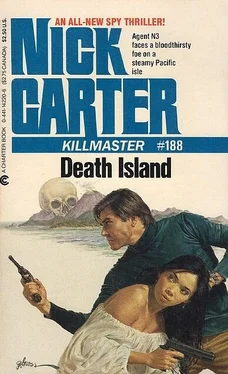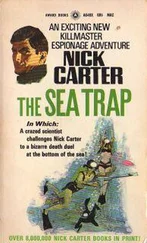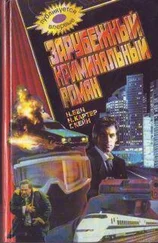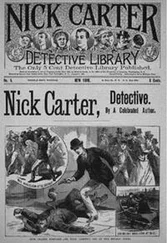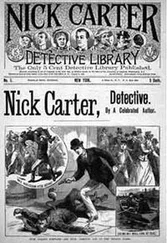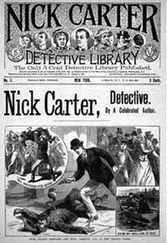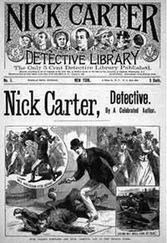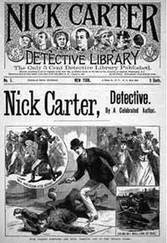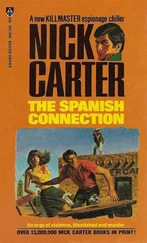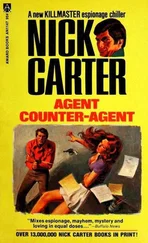Owen had reached them. “What the hell happened over there?” he shouted.
“Get a medic. Bob has been hurt,” Carter said, popping the door open.
Other people were coming up to the helicopter, and Owen called for one of them to get the doctor. Then he helped Carter lift Tieggs out of the machine. They laid him on the grass. He was in a lot of pain again, and the wound at his leg was leaking through the bandages.
“Is there anyone else on this base who can fly a helicopter?” Carter asked.
Owen shook his head. “We’ve called for our support aircraft, but it’ll be a day or so before it gets here. They’re going crazy in the city. Ever since the big explosion on Natu Faui.”
“The natives are on their way here right now,” Carter said. “They’re a couple of hours out. Maybe a little farther, but they’ll be here.”
“Damn,” Owen swore.
The base doctor came from the administration building at a dead run. Two technicians carrying a stretcher were right behind him.
Carter turned back to Tieggs. “They’ll fix you up, Bob. As soon as possible, I want you to refuel the chopper and get it over to the governor’s mansion.”
“I’ll get there,” Tieggs said thickly.
“He’s going nowhere,” the doctor said, taking Tieggs’s wrist.
“He’ll have to, Doctor,” Carter said, getting up. “Unless you can come up with another helicopter pilot.”
“And if it kills him?” the doctor snapped, looking up.
Carter shook his head. “No,” he said. “Just do the best you can. It’s important.”
“What’s going on?” Owen said. “Can you tell me that much?”
“No time now,” Carter said. “But I’ll need a jeep.” He headed across to the administration building where his bags were.
“It’ll be out front in five minutes,” Owen called after him.
Upstairs, Carter peeled off his shorts and climbed into a cool shower, letting the water cascade down his body, the spray sharp and wonderful.
With or without Tieggs and the helicopter, Carter figured he had probably lost the governor. The man could be hundreds of miles away by now. Very possibly on his way to China or to any of a thousand places where he would be safe.
It was just possible, however, that there would be some indication left behind at the mansion telling where they had gone. Or there might even be someone left behind — staff or one of his goons — who might be persuaded to tell where the governor had gone.
He stepped out of the shower just as a technician came into his room with a cold beer and a sandwich.
“Mr. Owen thought you might be hungry, sir,” the man said.
“Thanks,” Carter said, and the technician left.
Carter quickly got dressed, then rapidly took apart his Luger, oiled the parts, and reassembled it. He loaded the clip and put another in his pocket. He wiped Hugo’s blade with oil and strapped another gas bomb to his thigh.
He grabbed the sandwich and beer on the way out the door.
Downstairs he stopped at Owen’s office. The station manager was busy giving orders for the defense of the station. This would be the first native attack the technicians would be ready for.
“I’m going into town to find the governor,” Carter said.
Owen looked up from the phone. “Can you tell me what happened over on Natu Faui? We heard the explosion.”
“There was a Communist Chinese base over there. We destroyed it.”
Owen looked at Carter, dumbfounded. But then he slowly nodded his head. “And the governor? He’s working for the Chinese?”
“Something like that.”
Again Owen nodded. “I’ll send Bob along with the helicopter if and when the doc clears him.”
“Appreciate it,” Carter said, and he turned and hurried outside, tossing the half-full beer bottle into a trash can.
A jeep with keys in it was parked just outside. Carter jumped in and headed down to the main gate. Before he came to a complete halt, the technicians opened the gate for him. He waved and sped up, then he was down the hill and around the curve.
He drove as fast as he could, mindful of the fact that the Chinese had booby-trapped this road with downed trees on blind curves more than once in the past forty-eight hours.
But the drive into town was uneventful. The day was warm. The sky was beginning to clear in the east, and the wind had begun to calm down, although there were still large waves roaring onto the beach.
The hotel and Madame Leone’s, next door, were on fire, smoke rising high into the afternoon sky. At least a hundred Orientals were gathered in the square in front of the burning buildings. As Carter came around the last curve into town, the crowd was shouting something, but he couldn’t quite make it out. They spotted him almost immediately and came running to try to intercept him as he came around the lower road.
Carter sped up, pulled out his Luger, and fired a couple of shots over their heads.
The crowd fell back, and he was around the corner, past the square, and was soon screaming up the hill, expertly negotiating the switchback road. There did not seem to be anyone around, but there was a lot of debris littering the roadway. It was as if they had had a riot up here.
At the top he had to swerve to avoid a large wooden crate, but then he was around the last switchback and heading along the crest of the hill to the governor’s compound.
The main gate was closed, but it was unmanned as far as Carter could see. Without reducing speed he ducked down as he hit the gate, slamming one side off its hinges, the jeep slewing first left, then right before he got it under control again.
There was a large Mercedes sedan and two small trucks parked just down from the house, but the helicopters were gone.
Nothing looked disturbed, nor did the house look abandoned. The French flag flew from the pole just down from the driveway at the front of the house.
Carter pulled up and jumped out of the car as a young Oriental woman came out onto the veranda. Carter took the stairs two at a time up to her.
“Governor Rondine is not here this afternoon, sir,” she said.
“Where did he go?” Carter asked.
“I do not know, sir,” the woman replied.
“I’ll just wait in his study, then,” Carter said, brushing past her and hurrying across the veranda. At the French doors he hesitated a moment as he watched the young woman’s reflection in the glass. She pulled out a long knife from beneath her smock and silently charged.
At the last moment. Carter stepped aside, grabbed her wrist, and quickly twisted her arm. She dropped the knife with a little cry and stepped back as he let go.
He picked up the knife and tossed it over the railing. “Where did the governor and his wife go?” he demanded.
The woman was rubbing her wrist. She shook her head as she backed up. Suddenly she spun around and hurried across the veranda and down the stairs.
Carter pulled out Wilhelmina and entered the house. Two young Chinese boys stood in the entryway to the left. When they saw Carter they bolted up the stairs. A clock chimed somewhere, and he could hear music coming from upstairs.
He went through the living room and the dining room to the back of the house. To the left was the music room, beyond which was a small sitting room and then the kitchen. To the right was the hall that led to the back veranda. A set of double doors were closed.
He tried them. They were locked. He stepped back, brought up his Luger, and fired two shots into the lock, then kicked the doors open.
A Chinese man in a khaki uniform was seated at a radio set. He jumped up and spun around, a submachine gun in his hands.
Carter fired two shots, the first hitting the man in the chest, the second in his throat, blood splattering everywhere as he was thrown backward against the radio, his weapon clattering to the floor.
Читать дальше
